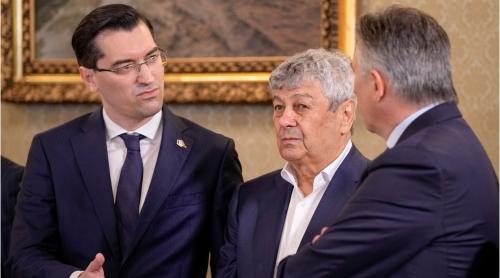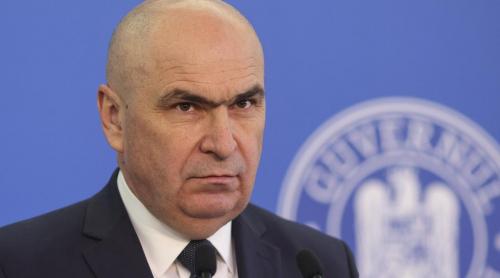
In 1978, the communist China ended the dogmatism of the cultural revolution and started an organized transformation based on the trial to conciliate the socialism inspired by Marx and Lenin with the Euro-Atlantic market economy and democracy as well as on the synthesis between the Chinese tradition and the modern civilization.
In 1978, the communist China ended the dogmatism of the cultural revolution and started an organized transformation based on the trial to conciliate the socialism inspired by Marx and Lenin with the Euro-Atlantic market economy and democracy as well as on the synthesis between the Chinese tradition and the modern civilization.
Unlike Russia and the European states in the former soviet block, China was afraid that the sudden disappearance of the communist symbols would leave the society without the checkpoints it was used to, which would have caused a separation between the people and the elites. On the other hand, they feared that the political liberalization in a moment in which the economy wasn’t reformed would lead to the appearance of certain elites created by the rifling of the public treasure and by dispersing the state between oligarchic power centers.
Even though, at first, the citizens’ participation was allowed economically, this led to a feeling of freedom as well as the capacity of the people to identify and defend their interests and rights within the existing political system. The freedom of the market cannot function without the existence of certain civilian freedoms; the transparency of the commercial competition cannot coexist with the opacity of the political decision; the social polarization as a result of the economical democratization imposes the reestablishment of the relation between the national cohesion and the instruments and methods of the political democracy – transparency, responsibility, positivism. However, steps were made by political means in accordance to the original therapy of a “revolutionary evolution” meant to open the Chinese world after decades of political pressure and centuries of cultural self-isolation. A massive disorder in a country with the dimensions of China would have the effects of a mass destruction weapon.
In spite of all the controversies and worries, the recorded progresses are huge. They certify the emergency of a global power supported by the army and by economical, cultural and demographic arguments. Unfortunately, the Euro-Atlantic powers that dominate the world don’t know how to rebuild the world order in such a way to integrate China as a strategic partner, and the Euro-Atlantic public opinion wasn’t aware of the new Chinese reality in order to ask for more responsibility from their leaders.
The Olympic Games that will take place in Beijing will be an opportunity for the world to take another look at China and to understand the changes that had taken place there. This is why the Occident accuses China of wishing to politicize the Olympics and transform it into propaganda.
A spontaneous riot suddenly begins in Tibet. Groups of Tibetans claim the independence of the region, attack the civilians and the representative of the authorities, and destroy public and private goods under the permission of the Buddhist Monks. The authorities’ repressions (very similar to the ones that would have taken place in any other city of the civilized world) start the concern of the democrat world. It results in discussions about the boycott of the Olympic Games or of certain Olympic events or about using them as means to criticize the actions of the authorities as far as the Tibetans were concerned.
The right to refuse modernity with all its schools, hospitals and other Chinese social investments in Tibet is claimed in the name of freedom, even though this refusal is also undemocratic. Presenting to the world the reality of a positive evolution is not blamable propaganda. On the contrary, transforming the Olympic Games into an opportunity to continue an ideological war is against the Olympic spirit. Using the Olympics as a mean of pressure against the political strategy of the host nation could be the definition of politicization. However, one does not see that, in the context of a transformation meant as a gradual voluntary opening under minimal internal pressure, the increase in the external pressure beyond certain thresholds leads to the inhibition of the process. We have to deal with the phenomenon of the regressive efficiency of the excessive pressure. Or, maybe, the slowing down of the reform process and the ascension of China is what they want!

















